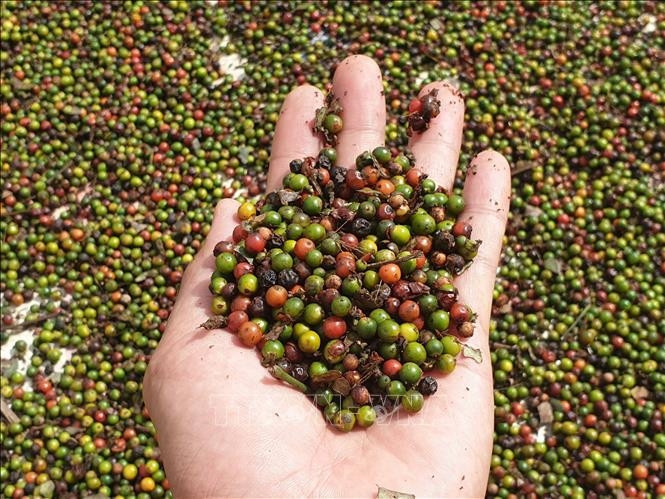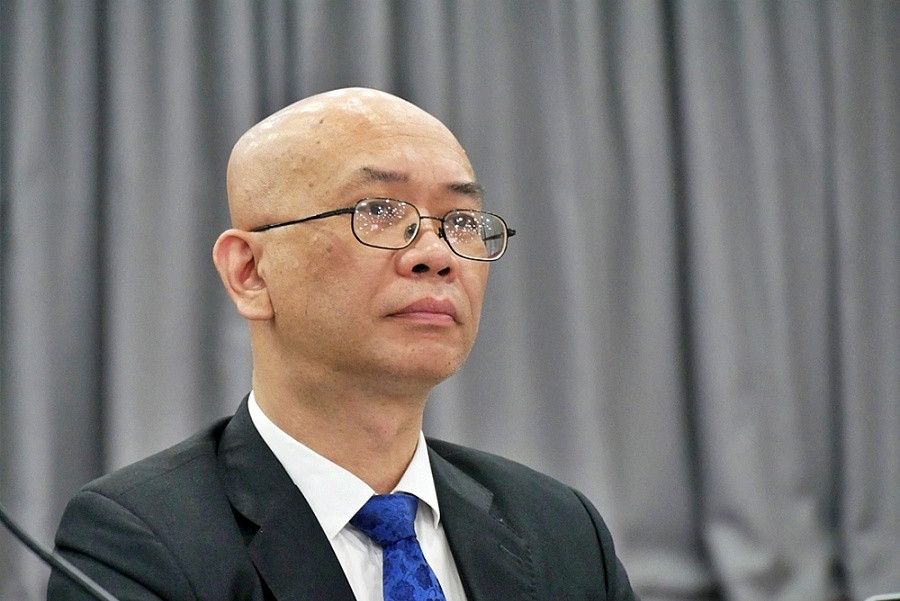To avoid fraud, businesses need to carefully research their partners, improve their understanding and choose appropriate forms of transactions.

Faced with many cases of fraud in agricultural exports, businesses need to be vigilant against increasingly sophisticated tricks.
Payment loopholes
Recently, a shipment of pepper, cinnamon, cashews and star anise worth over half a million USD exported to Dubai, United Arab Emirates (UAE) was suspected of fraud. Up to now, 4 shipments of pepper, cinnamon and cashews have been taken out of the port by the buyers, while the sellers, Vietnamese enterprises, have not received payment. The remaining shipment of star anise is being held at the port in Dubai.
In recent days, the Vietnamese Embassy and the Vietnamese Trade Office in the United Arab Emirates (UAE), together with Dubai authorities, have been taking action to ensure the rights of Vietnamese export enterprises.
Sharing about this incident, Mr. Tran Thanh Hai, Deputy Director of the Import-Export Department (Ministry of Industry and Trade) said that in international transactions, banks play a very important role. They are not only the agency that makes payments and transfers between buyers and sellers, but also play a role in ensuring that payments and transactions are more reliable. One of the methods that businesses often use through banks is D/P (documents for payment).
This is also the method that businesses in the recent 5 agricultural shipments have applied. In theory, this is a form of payment with a fairly high level of reliability. Through banks in Vietnam and partner banks with sufficient reliability, we can collect money when exporting.
However, in the case of 5 shipments exported to Dubai, when the Vietnamese bank transferred the documents to the foreign country, they were lost and fell into the hands of the buyer, while the buyer had not yet paid the bank in Dubai. This was the key point that led to the buyer receiving 4 shipments, while the other shipment was still being held at the port and they had not yet received it. Currently, the buyer's bank is also in the process of reviewing to find out why the documents fell into the hands of the buyer without payment.
Mr. Tran Thanh Hai said that businesses can only claim money from the bank, and the bank is responsible for claiming money from the buyer. However, businesses can only claim money from the bank when there is evidence that we have delivered the documents to the bank.
“One point here, similar to the case of 76 containers of cashews being defrauded in Italy last year, is that for some reason, the document delivery unit did not deliver the correct set of documents to the person in charge at the buyer’s bank. In this case, the set of documents was delivered to the bank’s security officer. So, is that officer the person authorized to receive that set of documents? This is a loophole in the process that all parties, including the bank and the delivery unit, must review?”, said Mr. Tran Thanh Hai.

Mr. Tran Thanh Hai, Deputy Director of the Import-Export Department (Ministry of Industry and Trade), said that businesses need to be careful when conducting international trade transactions.
Warning about risks in international trade
In the context of market difficulties, orders have decreased sharply globally, getting new export orders, large quantities, in large markets, that is the joy of businesses. However, if they lose vigilance or lack information and experience in dealing with partners, it will cause great damage to businesses.
According to a survey by PwC Vietnam, in 2022, 52% of Vietnamese businesses surveyed had been subject to international trade fraud, meaning that 1 in 2 businesses had faced international transaction fraud or economic crime.
The Vietnam Trade Office in Canada warns businesses to be careful and verify carefully when exporting to this market. There are currently people impersonating large Canadian businesses to fraudulently place orders.
According to the Vietnam International Arbitration Center, in many cases of fraud and commercial fraud in the import and export of goods, most regrettably, Vietnamese traders are often the ones who suffer the most damage. Vietnam is a country that actively integrates into the economy, when it basically forms a network of 17 free trade agreements (FTAs). FTAs have been and are opening up the market for Vietnamese exports. However, as the playing field becomes larger, Vietnamese enterprises also face more diverse risks. Therefore, enterprises themselves need to improve their understanding and choose appropriate forms of transactions; the participation of professional service providers will help to minimize risks.
Mr. Tran Thanh Hai, Deputy Director of the Import-Export Department (Ministry of Industry and Trade) said that in reality, as international trade grows, disputes often occur. These are civil transactions and disputes. However, it is worth noting that recently, state agencies such as diplomatic agencies, Vietnamese trade offices abroad, etc. have been involved in working with port authorities and the Ministry of Foreign Affairs on the other side to try to keep the fifth shipment. Then work with the shipping line to recover or transfer it to another buyer.
This continues to require verification of the credibility and reputation of the partner. This is not easy because the distance between countries is very far. However, currently, there are some solutions that businesses are using.
To avoid risks, Mr. Tran Thanh Hai recommends that businesses should go through credit rating organizations or business consulting organizations. They have a large database, updated regularly to be able to assess the situation of businesses. There are many such organizations, but businesses must accept to pay fees. Along with that, through organizations, industry associations, VCCI, Vietnamese diplomatic representative agencies abroad.
In addition, one way for businesses to limit risks is through logistics service businesses. For example, when an exporting business uses the services of a logistics business in Vietnam and has a partner in Dubai, they will be responsible for delivering the documents to the logistics partner in Dubai, not to the buyer. That partner will be responsible for delivering them to the buyer. In that case, even if the buyer has a set of documents, because the set of documents does not bear their name, they will not be able to get the goods. This is an effective process that businesses can implement at their fingertips.
“In addition, businesses themselves must always proactively raise awareness by working with legal consultants or lawyers throughout the business process, not just when disputes arise. They can review contracts, ensuring that the terms in them are the most reliable and do not cause disadvantages. Or when a dispute occurs, if a lawyer represents the business to resolve the dispute, the case can be resolved better,” Mr. Tran Thanh Hai noted.
At the same time, businesses need to regularly share and update information, raise awareness of unusual signs such as buyers using free email addresses for transactions; buyers making urgent and frequently changing demands; buyers avoiding direct meetings and contact; buyers ordering small initial shipments, paying in full, then suddenly ordering large quantities...
According to Tin Tuc Newspaper